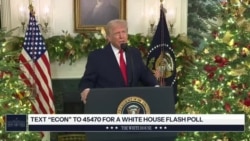华盛顿的智库“东西方中心”表示,21世纪无疑是亚洲世纪,到2030年,亚洲将有印度等三大巨型经济体。一种广泛流传的观点认为,亚洲前景已定:中国无可避免地崛起,日本无可避免地衰落。但是克劳德.梅杰博士告诫说,这种观点大概是轻率愚蠢的,就像1980年代那种认为“日本不可阻挡”的观点一样。
克劳德.梅杰博士今年发表了新书《谁将引领亚洲?中国还是日本?》他分析了中日两国各自的强点和弱点,以及双方在争当超强之战中所面临的主要挑战。以此为基础,梅杰博士提出了今后20年里很可能出现的前景。
这次座谈会在美国东部时间星期一下午两点到3点30分举行,也就是中国时间星期二凌晨3点到4点30分。
下面是现场视频:
英文资料:
China or Japan: the Rivalry for the Economic and Strategic Leadership of Asia
world's mightiest economies, including India. According to a widely held view, Asia's future is already mapped out with the irresistible rise of China and the ineluctable decline of Japan, already eclipsed by China in 2010 as second-biggest economy. However, Dr. Claude Meyer warns that such a view is probably ill-advised, just as the notion of an unstoppable Japan proved to be in the 1980s.
In his new book, China or Japan: Which Will Lead Asia? (Columbia/Hurst, 2012) Dr. Meyer aims to open a debate on the issue of leadership in Asia by analyzing the two rivals' strengths and weaknesses and the major challenges which they will face in that battle for supremacy. On this basis, he proposes a probable scenario for the next two decades in the light of the dialectical relationship between economics and strategic power. Dr. Meyer will discuss which of these aspects favor whom for the leadership of the region and other themes from his book.











